Future IDs at Alcatraz Community Programs
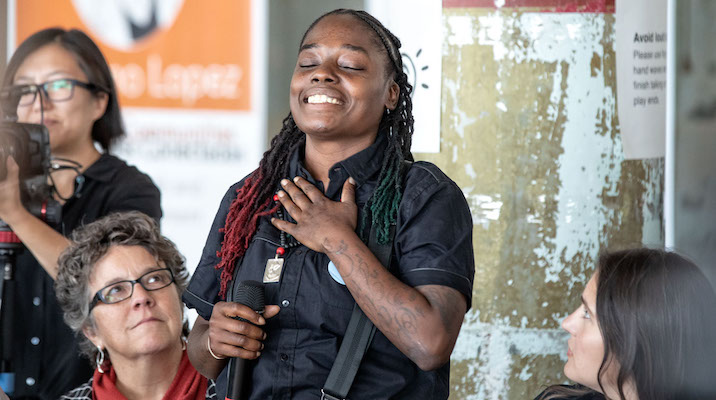
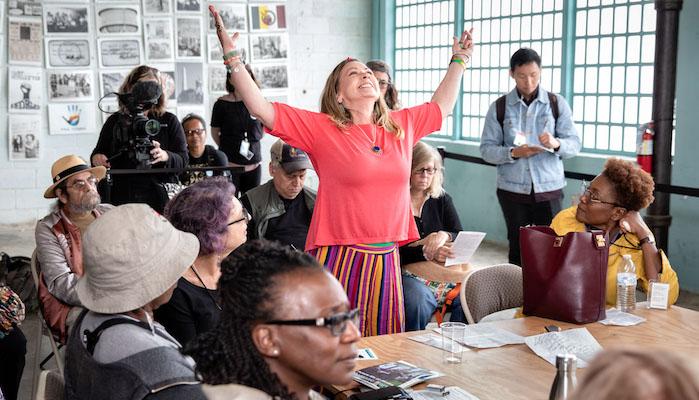
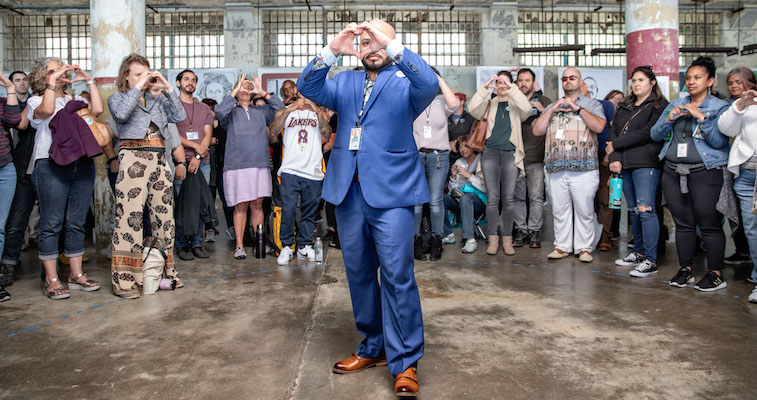
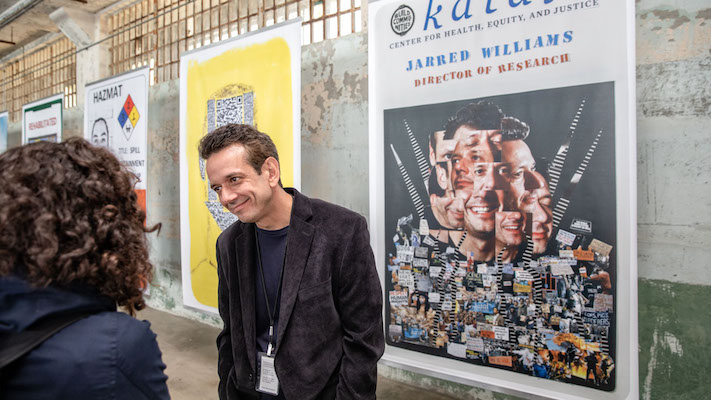
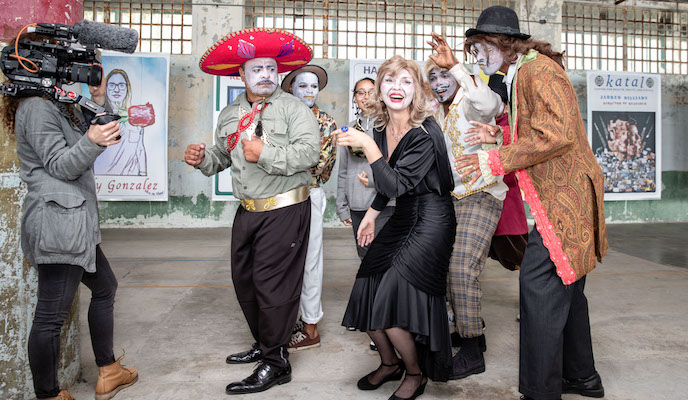
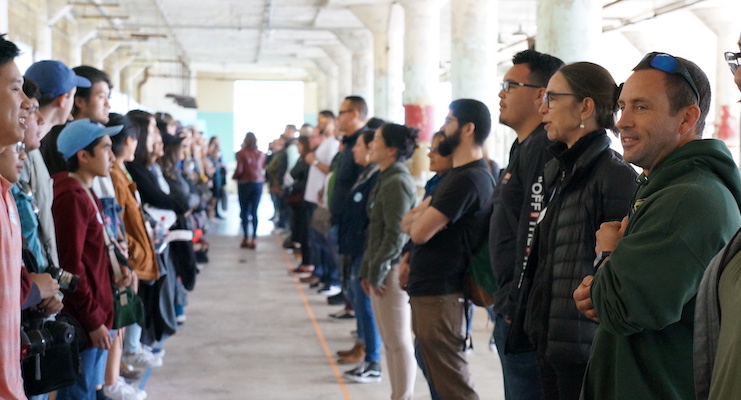
It used to be you couldn’t hang out with other people who’d been incarcerated. That would have been an instant violation. But who can support you if they don’t have that experience? A lot of reframing among correction authorities is realizing that. That community brings personal support and inspires; it shows that a second chance is possible.
— Kirn Kim, core project collaborator
Future IDs at Alcatraz centered the reentry community and other justice impacted individuals by holding civic space for stories of trauma, transformation, and resilience. Throughout the year, the exhibition served as a container for a total of 27 community programs and events that focused on the criminal justice system and its impact on individuals and communities. This focus played a critical role in helping to expand the ongoing work of Alcatraz as an International Site of Conscience.
The platform invited others to come in and use it in a way that forwarded the things they cared about. Programs were curated based upon shared intentions and desires around reframing the narrative of reentry. Future IDs at Alcatraz became a social-physical device: a process for softening boundaries and mutual learning where transformation could occur. Stand by Your Art was a recurring feature of our programs and involved artist-participants who made future IDs (or their family member representatives) discussing their artworks with visitors. These incredibly resonant conversations were an important way in which Future IDs at Alcatraz helped to shift the narrative around reentry, reintegration, and second chances.
The primary programs happened on the third Saturday of each month, adding a deeper dimension to the exhibition with a full day of performances, workshops, and roundtable discussions. These community programs were co-developed with system-impacted individuals and organizations invested in social justice issues and working to improve life after incarceration. Because not all experiences were compatible with the standard Alcatraz visitor experience, these groups got to decide what portion of those activities were opened or closed to the public based upon the needs and interests of their constituencies.
Space for Processing and Reflection
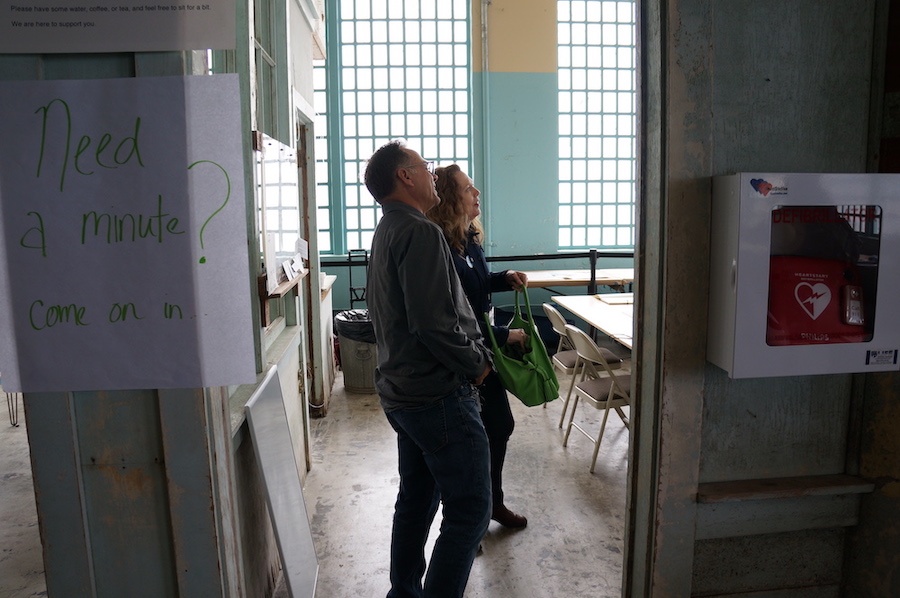
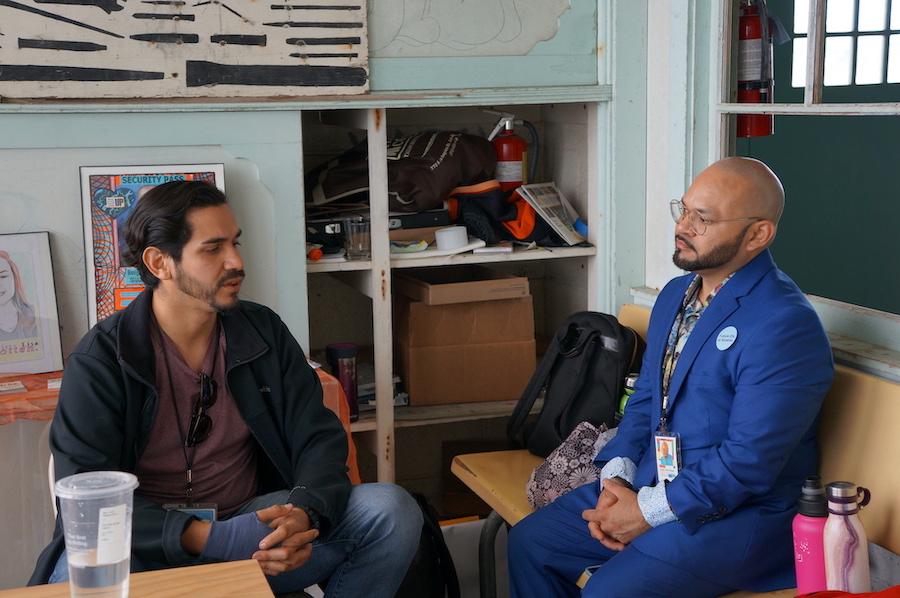
By centering our programs on justice-impacted individuals, Future IDs furthered the work of Alcatraz as an International Site of Conscience. Importantly, we refined techniques for holding civic space for stories of trauma, transformation, and resilience. We designated a safe, separate Space for Processing and Reflection after realizing that experiencing Alcatraz, combined with programmatic content, could evoke deep feelings, especially for formerly incarcerated people or their loved ones.